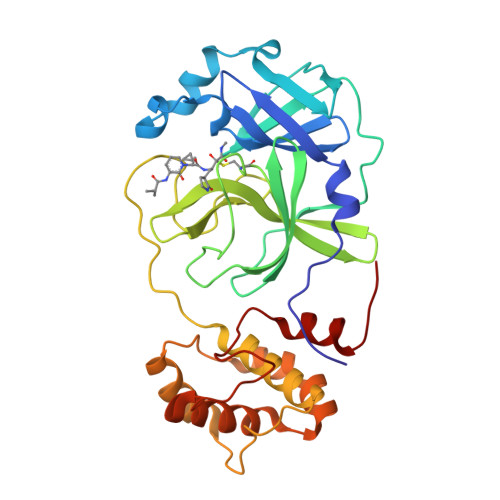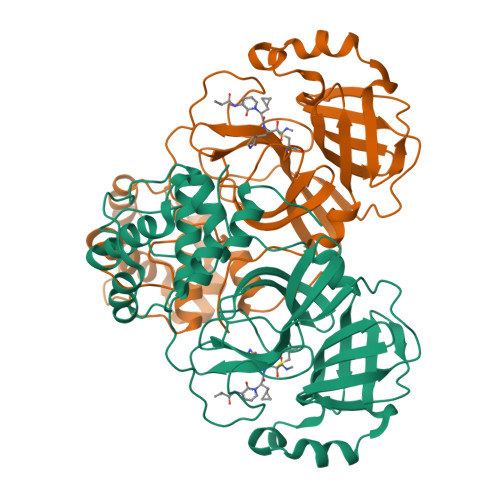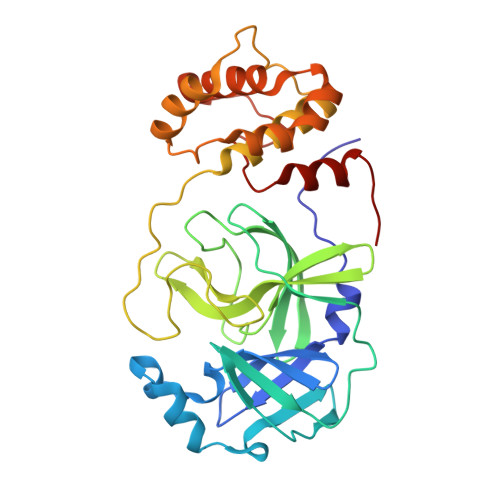Structure-Based Optimization of Pyridone alpha-Ketoamides as Inhibitors of the SARS-CoV-2 Main Protease.
Akula, R.K., El Kilani, H., Metzen, A., Roske, J., Zhang, K., Gohl, M., Arisetti, N., Marsh, G.P., Maple, H.J., Cooper, M.S., Karadogan, B., Jochmans, D., Neyts, J., Rox, K., Hilgenfeld, R., Bronstrup, M.(2025) J Med Chem
- PubMed: 39817813
- DOI: https://doi.org/10.1021/acs.jmedchem.4c02172
- Primary Citation of Related Structures:
8AIU, 8AIV, 8AIZ, 8AJ0, 8AJ1, 9F2V, 9F2X, 9F39, 9F3A, 9FHQ, 9GMQ - PubMed Abstract:
The main protease M pro is a clinically validated target to treat infections by the coronavirus SARS-CoV-2. Among the first reported M pro inhibitors was the peptidomimetic α-ketoamide 13b , whose cocrystal structure with M pro paved the way for multiple lead-finding studies. We established structure-activity relationships for the 13b series by modifying residues at the P1', P3, and P4 sites. Guided by cocrystal structures, we reduced the P1' substituent size to better fill the pocket and added a fluorine substituent to the pyridone ring, enabling a new hydrogen bond with Gln189 in P3. Among 22 novel analogues, 6d and 12d inhibited M pro with IC 50 s of 110 nM and 40 nM, improving the potency of 13b by up to 9.5-fold. Compound 6d had pronounced antiviral activity with an EC 50 of 1.6 μM and was stable in plasma and microsomes. The study illustrates the potential of structure-based design to systematically improve peptidomimetic α-ketoamides.
Organizational Affiliation:
Department of Chemical Biology, Helmholtz Centre for Infection Research, Inhoffenstr. 7, Braunschweig 38124, Germany.

















